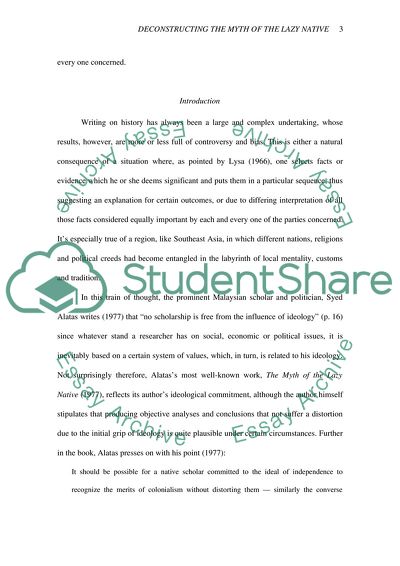Cite this document
(The Myth of the Lazy Native Book Report/Review Example | Topics and Well Written Essays - 2500 words, n.d.)
The Myth of the Lazy Native Book Report/Review Example | Topics and Well Written Essays - 2500 words. https://studentshare.org/history/1759396-deconstructing-the-lazy-native
The Myth of the Lazy Native Book Report/Review Example | Topics and Well Written Essays - 2500 words. https://studentshare.org/history/1759396-deconstructing-the-lazy-native
(The Myth of the Lazy Native Book Report/Review Example | Topics and Well Written Essays - 2500 Words)
The Myth of the Lazy Native Book Report/Review Example | Topics and Well Written Essays - 2500 Words. https://studentshare.org/history/1759396-deconstructing-the-lazy-native.
The Myth of the Lazy Native Book Report/Review Example | Topics and Well Written Essays - 2500 Words. https://studentshare.org/history/1759396-deconstructing-the-lazy-native.
“The Myth of the Lazy Native Book Report/Review Example | Topics and Well Written Essays - 2500 Words”. https://studentshare.org/history/1759396-deconstructing-the-lazy-native.


